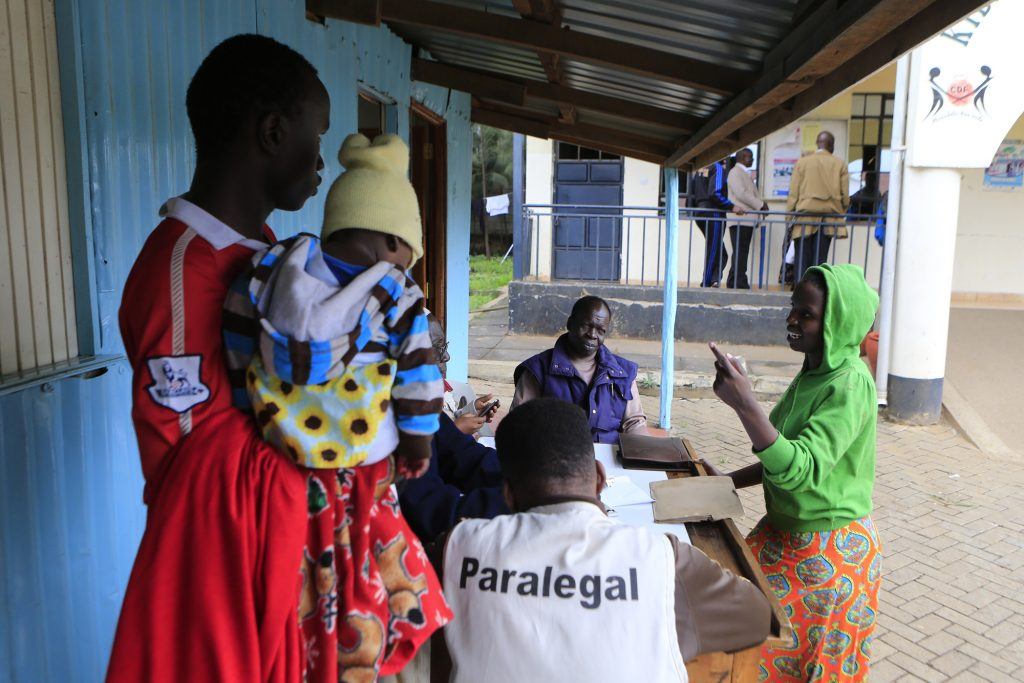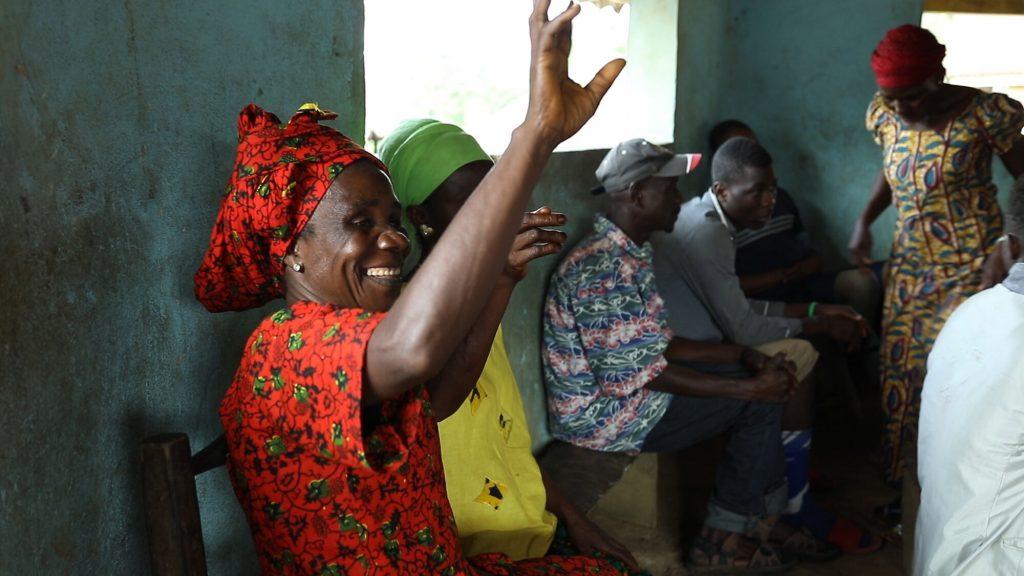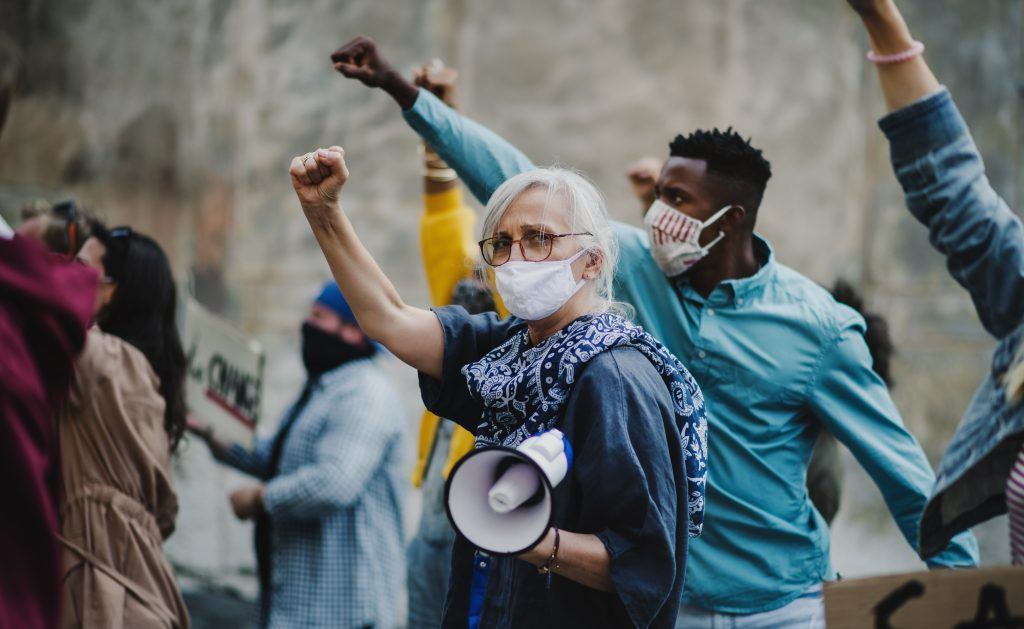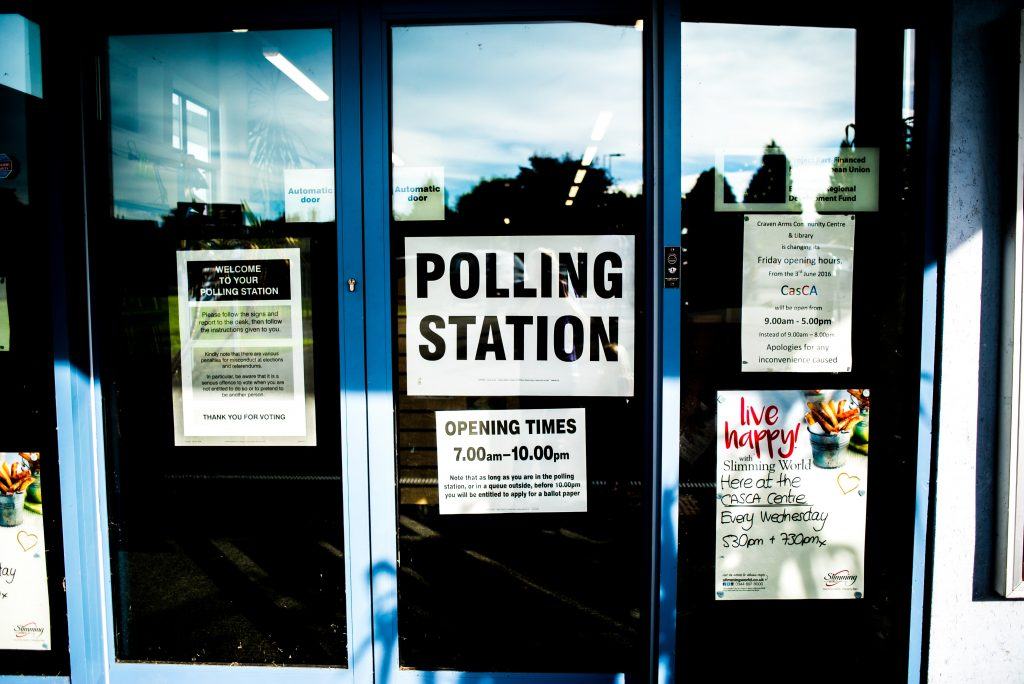The Action Plans
Access the action plans of OGP members in the 2020 cohort below:
| Africa | Americas | Asia-Pacific | Europe |
| Côte d’Ivoire Kenya Liberia South Africa | Chile Colombia | Azerbaijan Indonesia | Albania Czech Republic Estonia Netherlands Romania Serbia Spain Ukraine |
Introduction
The Open Government Partnership (OGP) provides an opportunity for government and civil society reformers to make governments more transparent, participatory, and accountable. Working together, government and civil society in 78 countries and 76 local jurisdictions co-create action plans with concrete commitments across a variety of sectors. This page summarizes findings – by policy area – from the 16 action plans submitted by OGP members between January 1, 2020 and February 28, 2021.1 The data and full action plan texts are publicly available online (see “About the Data”). 2020 commitments have not yet been reviewed by OGP’s Independent Reporting Mechanism (IRM), meaning any references to these commitments should not be viewed as an evaluation of their quality or ambition.2
Basic Stats
|
On This PageFeatured Policy Areas |

Open Response + Open Recovery
Nearly half of 2020 action plans include commitments related to COVID-19 response and relief.
OGP launched the Open Response + Open Recovery campaign in 2020 to emphasize the importance of open government values in creating a strong pandemic response. In 2020, seven of the 16 OGP members made ten pandemic-related commitments. Half of these commitments were made by African members. Several members, like Liberia and Romania, committed to publishing open health data regarding COVID-19, including information on case numbers, health supplies, and treatments. Other members, including Indonesia and Kenya, focused on transparency of pandemic response budgets and COVID-19 emergency procurement. Members also committed to improve collaboration with citizens. Colombia is strengthening public monitoring of pandemic-related projects and the Czech Republic is creating a new public participation methodology, which includes rules for communication during emergency situations.

Beneficial Ownership
Over 40 percent of OGP countries are currently implementing beneficial ownership commitments, the highest rate since OGP was established in 2011.
Beneficial ownership transparency is an effective way to combat illicit financial flows by revealing who ultimately controls or profits from companies. In 2020, seven OGP members made eight beneficial ownership commitments. While Albania made its first beneficial ownership commitment in 2020, several members are building on past reforms, including Indonesia, Kenya, Liberia, and Ukraine. For example, Liberia is working to make their existing register open for public scrutiny. Altogether, 32 OGP members have now made at least one beneficial ownership commitment. Eight of the 16 members with 2020 plans have now started implementing beneficial ownership transparency. Four of the eight commitments this year were made by African members, including Kenya and Liberia. South Africa is also developing a course of action on how to carry forward their previous beneficial ownership commitment under the new administration.

Justice
60 percent of OGP members are currently implementing commitments related to justice, the highest rate since OGP was established in 2011.
An open, fair, and efficient justice system is essential in allowing citizens to protect their rights and seek redress and remedy for grievances. In 2020, 11 of 16 OGP members made 21 justice commitments. Over a quarter of Indonesia’s 2020 commitments were related to justice, including their commitments to increase accessibility for persons with disabilities in the judicial process and expand capacity of legal aid services. Five commitments are being implemented primarily by judiciaries, such as Kenya’s commitment to increase access to justice through Alternative Justice Systems and Chile’s commitment to increase understanding of legal language and procedures of the judiciary.

Inclusion
More members are currently implementing commitments related to gender or inclusion than at any point since OGP was established in 2011.
Ensuring that marginalized groups have a voice to hold their governments to account is critical to promoting political equality – whether that is based on gender, sexuality, ethnicity, or other status. 12 OGP members made 39 commitments related to inclusion in their 2020 action plans. Of these, 17 commitments are focused on gender specifically, including Indonesia’s plan to create a digital platform for female health services and Côte d’Ivoire’s commitment to add a budget line for contraceptive products in hopes of reducing maternal deaths. Nearly half of 2020 inclusion commitments were made in Europe, such as Serbia’s commitment to create a reporting system for violence against children and Ukraine’s plan to improve digital accessibility for persons with disabilities. 40 percent of gender-related inclusion commitments were made in Africa, a notable increase from past years.

Open Parliament
Nine of the ten 2020 open parliament commitments are being implemented primarily by the legislatures themselves.
Open government reforms often require the support of parliaments, who are key in taking legislative action, building support, and providing financial backing. In 2020, four out of the 16 OGP members made ten open parliament commitments, including Chile and Estonia’s commitments to create digital platforms for legislative transparency. In recent years, members are incorporating “open parliament plans” within their larger action plan, such as Open Parliament Indonesia’s (OPI) 2020 initiative. This year, OPI committed to furthering the values of open government through commitments such as publishing an open parliament data platform and forming a multi-stakeholder forum to increase public participation in the legislative process.

Civic Space
Only 20 percent of OGP members are actively implementing civic space commitments.
Roughly half of OGP countries face challenges such as regular harassment of activists and journalists and barriers to free association and free assembly. While this remains a critical area for OGP, its potential is underdeveloped in action plans. In 2020, five OGP members made five civic space commitments, representing less than two percent of all 2020 commitments. Examples include Romania’s commitment to promote the civil rights of minority citizens, as well as Indonesia’s commitment to promote civic space in restorative justice efforts. Azerbaijan also committed to better enable NGO activities, such as registration and participation in decision-making, which will be critical for a forthcoming review of their OGP membership. Members in the Americas did not submit any civic space commitments through the OGP process in 2020. Nigeria also updated their 2019 action plan to include a commitment on enhancing police oversight and including civil society in the design and implementation of police reform.3

Digital Governance
Nearly one in five OGP members are currently implementing digital governance commitments, the highest rate since OGP was established in 2011.
Digital governance is an issue with increasing importance around the world. New technologies with great potential to benefit society simultaneously threaten democratic and open government. In 2020, four of the 16 OGP members made six digital governance commitments. Five of these commitments were made in Europe, including Spain’s commitment to finding ethical public sector uses for AI and the Netherlands’ commitment to making government purchases and use of algorithms more transparent. All of the 2020 digital governance commitments are related to automated decision-making, meaning that no OGP members are currently implementing commitments related to regulation of big tech or disinformation.

Political Integrity
One-third of OGP members are currently implementing commitments related to political integrity.
Political corruption is one of the biggest threats to democracy, and open government approaches are essential in removing illicit funds from politics and maintaining free and fair electoral competition. In 2020, six OGP members made 12 political integrity commitments. Of these, four commitments were related to lobbying, whereas asset disclosure, conflicts of interest, and political finance each had three related commitments.4 Most of the 2020 political integrity commitments were made by European members, including the Netherlands’ commitment to publish transparent electoral results and Estonia’s commitment to implement guidelines that prevent conflicts of interest. Following the success of Madrid’s local lobby registry commitment in 2017, Spain committed to establishing a law to regulate lobbying.
In addition to the full action plan texts available on the OGP member pages, commitment-level data can be found and downloaded on OGP’s Open Data page. Datasets are available in multiple formats under an open license. The Public Access Commitments Database is updated daily and covers all action plans through the 2020-2022 action plan cycle. This year, new commitment tags include Pandemic Response, Tax, and Safety Nets and Economic Inclusion.
- All action plans submitted during this timeframe are considered 2020-2022 action plans, with the only exception being Spain’s 2020-2024 action plan. The deadline for submission was extended due to co-creation challenges caused by the COVID-19 pandemic.
- See the Criteria and Standards Subcommittee Resolution related to delays in the action plan submission and evaluation process due to the COVID-19 pandemic.
- Since this is an update to their 2019-2022 action plan, this commitment is not included in the 2020 stats.
- Commitments may fall within multiple sub-categories of political integrity.
